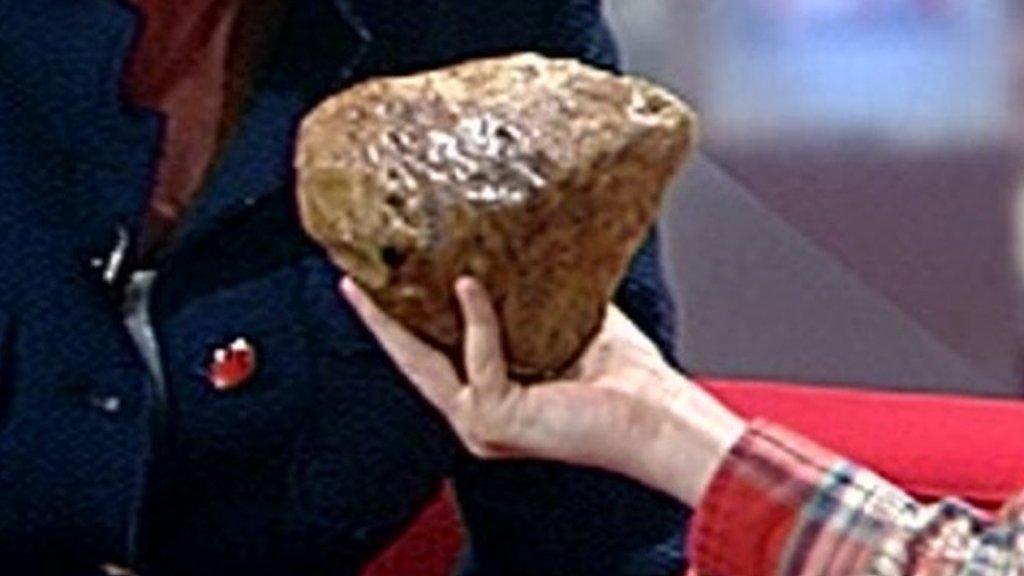'Whale dung stone' found on Ilfracombe beach
- Published

Musician Jack Tipper said he "knew what it was a soon as I found it"
A man has found what he believes to be a valuable whale dung stone while walking on a beach.
Jack Tipper, 39, made the discovery of the waxy, yellow substance in Ilfracombe, Devon.
Used in the manufacture of perfume, ambergris is found in the digestive system of sperm whales and is commonly called "floating gold" due to its rarity.
Experts say it has yet to be found in the south-west of England.
More on this story and others in Devon and Cornwall
Mr Tipper believes the lump of ambergris had been washed up on the beach during a recent storm.
He is keeping it in a safe while he considers his next steps.

Ambergris is found in the digestive system of sperm whales
Mr Tipper said he has been told it could be worth more than £200,000 - depending on how long it had been in the sea.
"I've spoken to a university about it and an online expert who specialises in selling ambergris and I've been told it looks like it's genuine," he said.
"Maybe it's providence. I'm a musician and I put on lots of free community events and I've never been able to afford a house, so this would help."
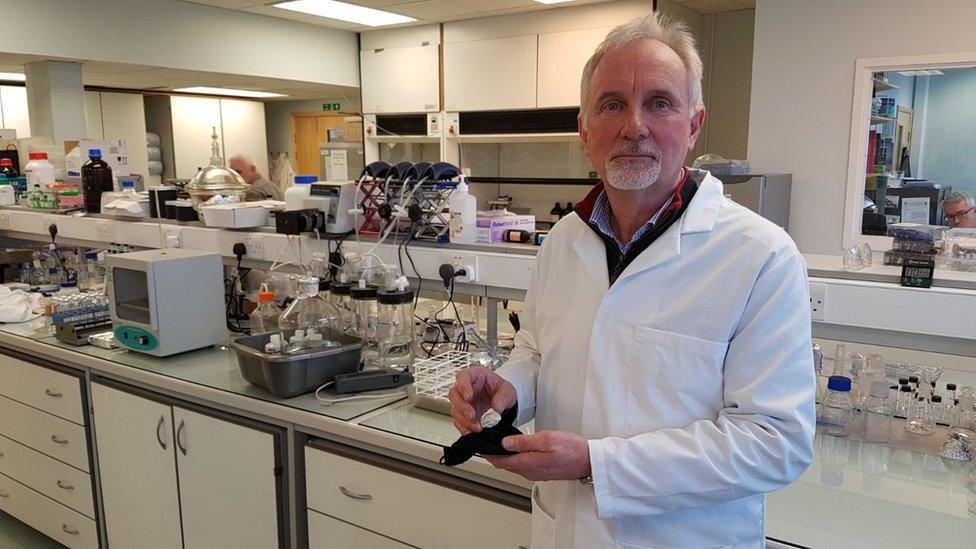
Professor Steve Rowland is "sceptical" of the discovery
However, a local academic who has studied ambergris for almost five years has said that he "remains sceptical, as it's very rare."
Professor Steve Rowland, from Plymouth University, said that there have been "no verified samples from the South West".
"We've had a lot recently which were not ambergris, but palm oil, paraffin wax, or fat of various types."
A 1.1kg (2.4lb) lump of ambergris found by a dog walker on an Anglesey beach sold at auction for £11,000 in 2015.
The substance takes years to form and is thought to protect the whales from the hard and sharp objects they swallow.
- Published26 August 2016
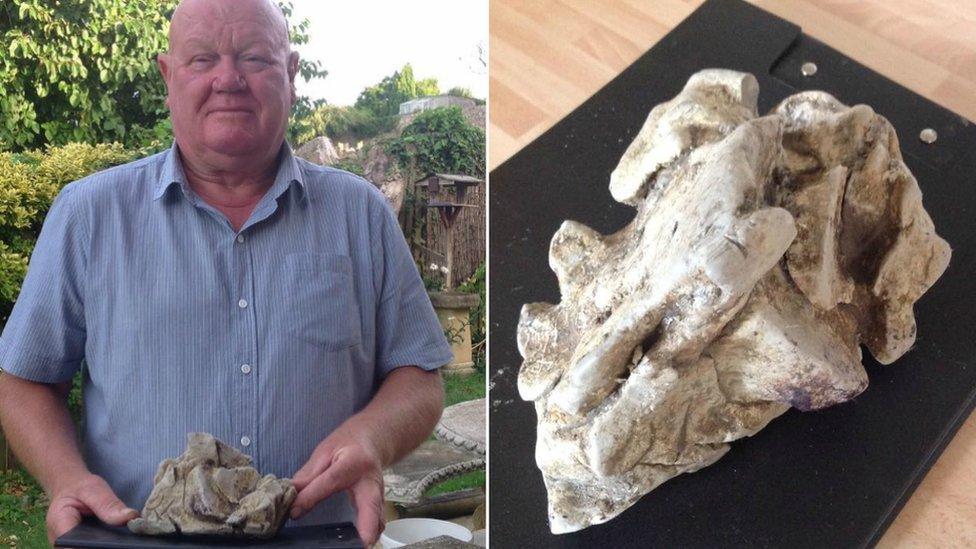
- Published26 September 2015
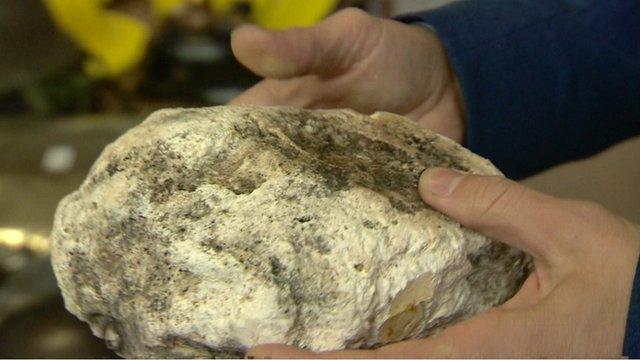
- Published30 January 2013
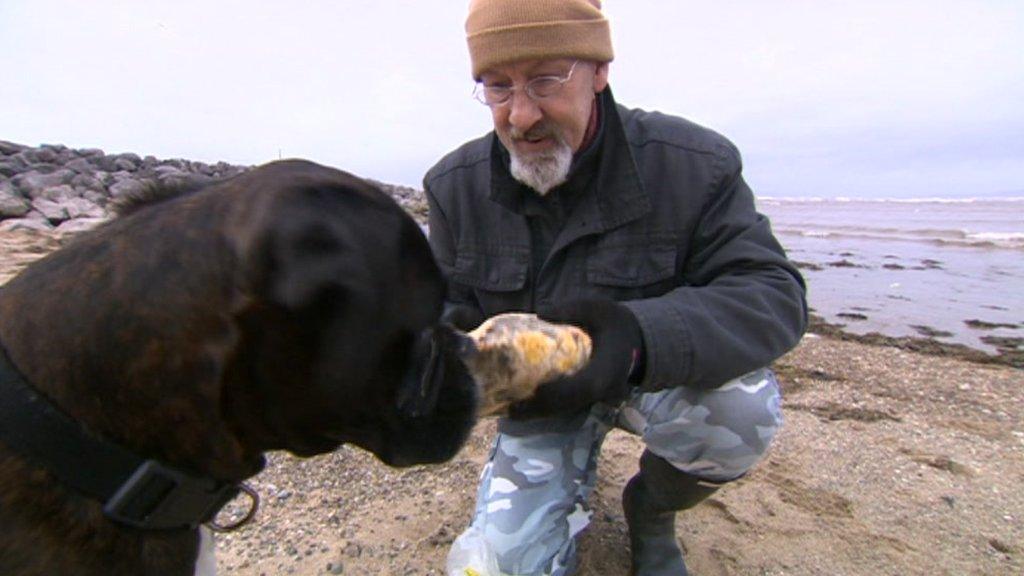
- Published30 August 2012
